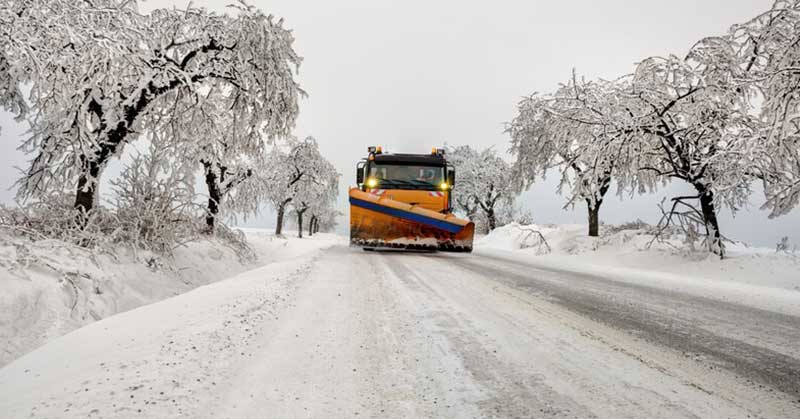In most parts of the country, winter weather is in full swing. For people living in northern states, that usually means snow, ice, and plenty of freeze/thaw cycles. Those living in southern states get their fair share of winter weather as well, although that typically means lots of rain and an occasional bout of freezing temperatures, with even a little snow or ice from time to time. All this winter weather can be hard on asphalt surfaces. Here’s how and why:
- The freeze/thaw cycle that many areas of the country experience during the winter months will cause asphalt to expand and contract. As that happens, the integrity of the surface is compromised, and damage occurs in the form of cracks, potholes, and crumbling. If those issues aren’t fixed as soon as possible, the sub-layer of the asphalt can be damaged as well. Once that happens, it can weaken the entire surface.
- If you’re fortunate enough to live in an area of the country that just experiences mostly rain during the winter, your pavement can still be damaged during the colder months. In fact, water is one of the most common reasons for asphalt damage. Even if your paved surface is in relatively good condition, with only a few minor cracks here and there, rainwater can seep into those tiny cracks and cause significant damage. Once water invades the paved surface, it will expand as temperatures drop, and the pavement will experience the same set of problems brought about by a full-fledged freeze/thaw cycle. Water that washes underneath asphalt at the edge of a paved surface can also create problems by collecting in the ground underneath the pavement, causing it to sink. That forms cracks and potholes in the asphalt surface above it.
- Whether you live in a colder or milder climate, if your asphalt is on a steep surface, you have another issue to contend with: erosion. This is especially an issue in very wet areas, where rainwater can literally wash away the surface of asphalt a little at a time over a period of years, leaving behind only rock and aggregate.
Fortunately, there are some precautions you can take to protect your asphalt from winter weather – namely, having it seal coated and having any minor cracks repaired before too much damage is done. While it’s true that winter isn’t the best time to have new asphalt poured, paving contractors can usually make these types of repairs throughout the year, including during the winter. Contact a local paving contractor to find out more.
